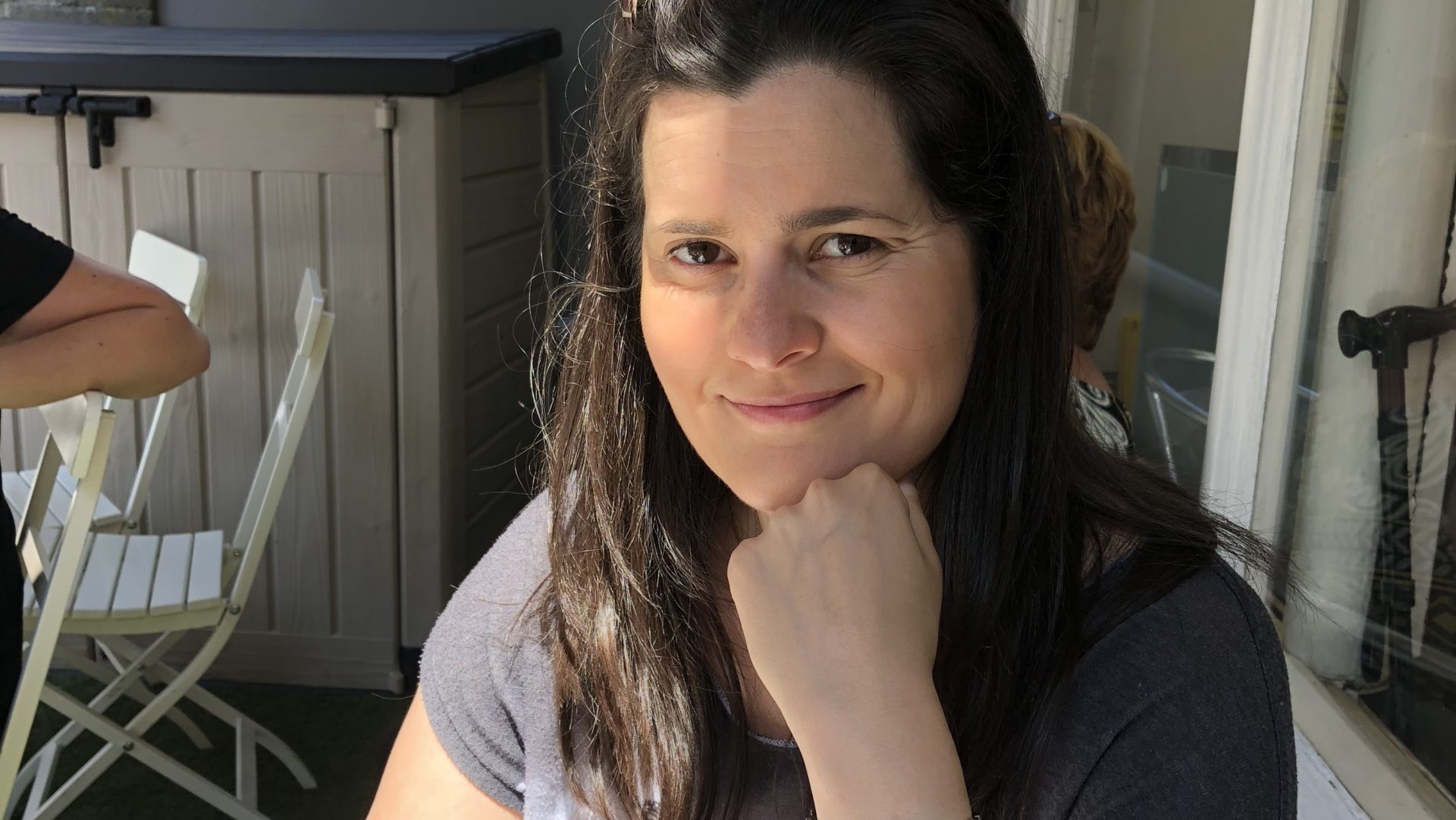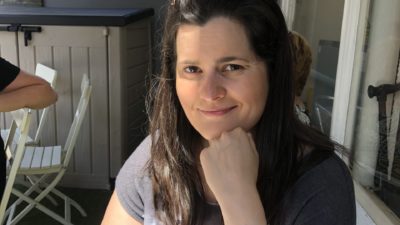

Using my painful experience to change the future for others
After Claire's husband died of pancreatic cancer in 2018, she decided to use her painful but valuable experience to become a member of our Research Involvement Network.
For me, being a part of the Research Involvement Network has really helped me to channel my emotions. I never want my husband to be just another statistic to this horrid disease and being part of this group helps me feel I’m still fighting for him.
I get an opportunity to use my experiences to ensure the relevance and impact of research, so that we can change the future for others. I think my husband would be proud – to take something horrid and use it to benefit others. He was the first to reach out and help other people and his legacy is now mirrored through me.
I joined the Pancreatic Cancer UK Research Involvement Network (RIN) in June last year because sadly I lost my husband, Stephen to Pancreatic Adenocarcinoma in October 2018. It was a complete shock, especially after he had previously overcome bowel cancer.
I feel passionately about research and, although you don’t need a background in this area to be a part of the network, I work within a research environment and I see on a daily basis how hard researchers work to make step changes in their field.
I wanted to be part of the pancreatic cancer research world, to use my painful but valuable experience to really help make change to a cancer that has seen little progress over the last forty years.
Pancreatic cancer research has not stopped. Neither has the RIN.
Given that we are in the middle of a pandemic, I was naturally concerned that pancreatic cancer research would stall. I was wrong. Researchers have found new and innovative ways to continue the fight. As a RIN member, as we are unable to travel, work is now being done via Zoom calls and email.
We all get the opportunity to speak and share our experiences. You can see that what you’re sharing is making the researcher reflect, re-think aspects of their work/research study in order to make it more relevant to and focused on the needs of people with pancreatic cancer and hopefully, more effective.
Prior to the pandemic I was invited to be a panel member of Pancreatic Cancer UK’s Clinical Pioneer Awards. I felt very proud to be approached about this and felt I could really make a difference.
These awards are designed to attract applications from researchers and clinicians aiming to ensure that everyone affected by pancreatic cancer receives the best standard of care, treatment and support. It was incredible to see that we really do have some world class researchers in the field. They are pushing and striving to change areas that are sadly overlooked or have not had the opportunity to be researched.
My involvement with the awards really energised me. There is nothing stronger than a voice with experience to really shape the work to help future patients. It was also my first trip away since my husband passed away, so to say I was nervous was an understatement but the Pancreatic Cancer UK team looked after me. I felt really valued, respected and appreciated.
I’ve developed a close relationship with those at Pancreatic Cancer UK.
I’ve been involved with supporting pancreatic cancer support days; raising awareness events and so much research review activity. My loss is recent and raw but Pancreatic Cancer UK understood this – there was no pressure, you can do as little or as much as you want and it’s okay to say ‘this is not for me’ too.
I feel Pancreatic Cancer UK has in many ways, become a second family. I know I can go to them for support at any time; they are always asking how I am. Pancreatic cancer is sadly, forever part of my life, but it helps to know there is a community out there that can help and support me.
Making that decision to use your experience is a difficult one.
It’s not for everyone, what I would say is that I was scared too. I wondered if I was doing the right thing, reliving and bringing things to the front of my mind when I hear my husband say, ‘Hun, you have to move on.’
Doing this work has in many ways, helped make me stronger. I looked at my husband when he was so ill and felt powerless – there just wasn’t enough treatment or supportive measures in place to help us. Now I want to change that and the RIN gives me a channel in which to help bring about that change.
Pancreatic cancer took the man I love but I won’t let it tarnish his beautiful memory. He was inspiring in his fight to beat cancer, and I’m inspired to fight too.
If you are interested in joining the Research Involvement Network and to learn how you could get involved, please visit our get involved in research section.
If you have any questions for Claire or would like to hear more about the Research Involvement Network before signing up, please email research@pancreaticcancer.org.uk
You can also read this blog by Dr Dom O’Connor, who is working on one of our Research Innovation Fund projects and provides the researcher perspective of gaining insight from people affected with pancreatic cancer through our RIN.